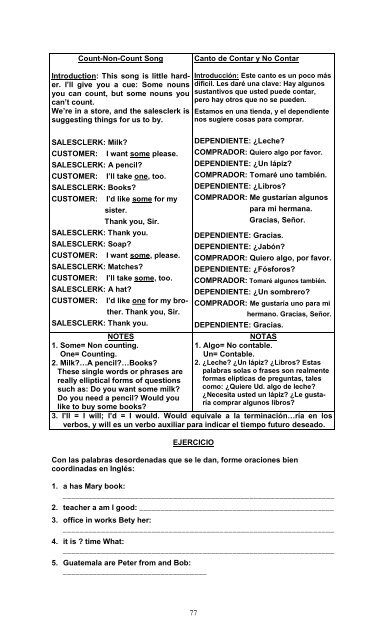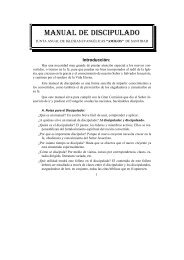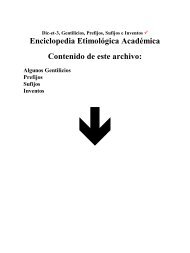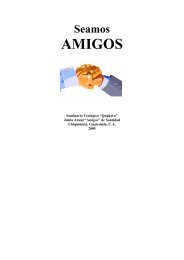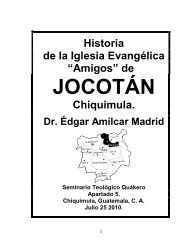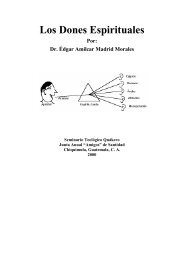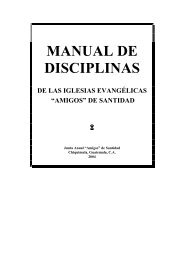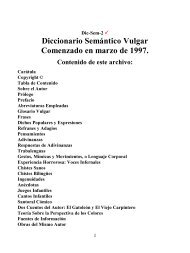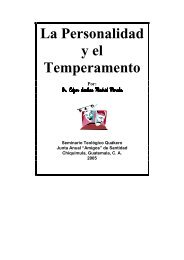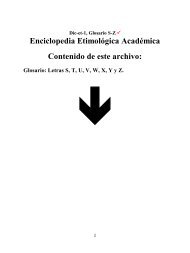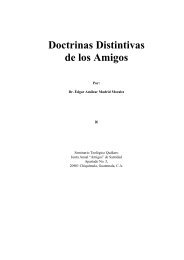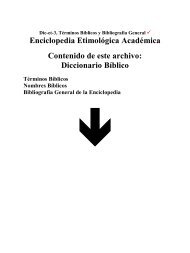EJERCICIOS PARA EL LABORATORIO DE INGLES - Radio Verdad
EJERCICIOS PARA EL LABORATORIO DE INGLES - Radio Verdad
EJERCICIOS PARA EL LABORATORIO DE INGLES - Radio Verdad
You also want an ePaper? Increase the reach of your titles
YUMPU automatically turns print PDFs into web optimized ePapers that Google loves.
Count-Non-Count Song<br />
Canto de Contar y No Contar<br />
Introduction: This song is little harder.<br />
I‘ll give you a cue: Some nouns<br />
you can count, but some nouns you<br />
can‘t count.<br />
We‘re in a store, and the salesclerk is<br />
suggesting things for us to by.<br />
SALESCLERK: Milk?<br />
CUSTOMER:<br />
I want some please.<br />
SALESCLERK: A pencil?<br />
CUSTOMER:<br />
SALESCLERK: Books?<br />
CUSTOMER:<br />
I‘ll take one, too.<br />
I‘d like some for my<br />
sister.<br />
Thank you, Sir.<br />
SALESCLERK: Thank you.<br />
SALESCLERK: Soap?<br />
CUSTOMER:<br />
SALESCLERK: Matches?<br />
CUSTOMER:<br />
SALESCLERK: A hat?<br />
CUSTOMER:<br />
I want some, please.<br />
I‘ll take some, too.<br />
I‘d like one for my bro-<br />
ther. Thank you, Sir.<br />
SALESCLERK: Thank you.<br />
NOTES<br />
1. Some= Non counting.<br />
One= Counting.<br />
2. Milk?…A pencil?…Books?<br />
These single words or phrases are<br />
really elliptical forms of questions<br />
such as: Do you want some milk?<br />
Do you need a pencil? Would you<br />
like to buy some books?<br />
Introducción: Este canto es un poco más<br />
díficil. Les daré una clave: Hay algunos<br />
sustantivos que usted puede contar,<br />
pero hay otros que no se pueden.<br />
Estamos en una tienda, y el dependiente<br />
nos sugiere cosas para comprar.<br />
<strong>DE</strong>PENDIENTE: ¿Leche?<br />
COMPRADOR: Quiero algo por favor.<br />
<strong>DE</strong>PENDIENTE: ¿Un lápiz?<br />
COMPRADOR: Tomaré uno también.<br />
<strong>DE</strong>PENDIENTE: ¿Libros?<br />
COMPRADOR: Me gustarían algunos<br />
para mi hermana.<br />
Gracias, Señor.<br />
<strong>DE</strong>PENDIENTE: Gracias.<br />
<strong>DE</strong>PENDIENTE: ¿Jabón?<br />
COMPRADOR: Quiero algo, por favor.<br />
<strong>DE</strong>PENDIENTE: ¿Fósforos?<br />
COMPRADOR: Tomaré algunos también.<br />
<strong>DE</strong>PENDIENTE: ¿Un sombrero?<br />
COMPRADOR: Me gustaría uno para mi<br />
<strong>DE</strong>PENDIENTE: Gracias.<br />
hermano. Gracias, Señor.<br />
NOTAS<br />
1. Algo= No contable.<br />
Un= Contable.<br />
2. ¿Leche? ¿Un lápiz? ¿Libros? Estas<br />
palabras solas o frases son realmente<br />
formas elípticas de preguntas, tales<br />
como: ¿Quiere Ud. algo de leche?<br />
¿Necesita usted un lápiz? ¿Le gustaría<br />
comprar algunos libros?<br />
3. I‘ll = I will; I‘d = I would. Would equivale a la terminación…ría en los<br />
verbos, y will es un verbo auxiliar para indicar el tiempo futuro deseado.<br />
EJERCICIO<br />
Con las palabras desordenadas que se le dan, forme oraciones bien<br />
coordinadas en Inglés:<br />
1. a has Mary book:<br />
________________________________________________________________<br />
2. teacher a am I good: ______________________________________________<br />
3. office in works Bety her:<br />
________________________________________________________________<br />
4. it is ? time What:<br />
________________________________________________________________<br />
5. Guatemala are Peter from and Bob:<br />
__________________________________<br />
77


